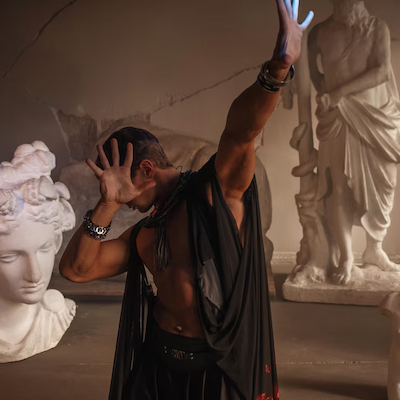
The influence of mythology on world literature is a timeless and rich subject that spans centuries and civilizations. Mythology, with its tales of gods, heroes, and cosmic battles, has always provided fertile ground for storytelling. From ancient epics to modern fantasy novels, myths shape narratives, infuse meaning, and resonate with universal human experiences. They offer not only a mirror of the cultures they originate from but also a bridge that connects different peoples across time.
Writers throughout history have drawn from these ancient stories to craft new tales, reinterpreting them for new generations. Whether it’s the valor of Achilles or the journey of Frodo, these narratives echo the mythic structures first laid out in oral traditions and ancient texts. Understanding this mythological influence opens the door to a deeper, more meaningful engagement with literature across cultures and epochs.
How Mythological Influences Work in Literary Narrative
Mythological influences in literary narrative are a fascinating phenomenon that have permeated literature since its origins. Mythology, as a collection of stories and beliefs that explain a people’s culture and traditions, serves as a rich source of ideas and themes that authors have explored throughout history. From Homer’s epics like The Iliad and The Odyssey, to the contemporary works of J.R.R. Tolkien, mythology provides a deep and universal context that enriches the narrative and brings characters and plots to life.
These influences appear in various forms, such as the creation of heroes with supernatural traits, the presence of gods and mythical creatures, and the exploration of universal themes like the struggle between good and evil. Literary narratives not only draw from mythology but also reinterpret it, adapting it to new contexts and realities. Thus, mythology becomes a link between past and present, allowing authors and readers to connect through stories that resonate across cultures and eras.

Advantages of Understanding Mythology in World Literature
Understanding mythology in world literature brings a range of benefits that enhance both the reading experience and comprehension of literary works. First, this knowledge allows readers to identify and appreciate the mythological references embedded in narratives. Many authors subtly use mythological symbols and archetypes, and recognizing these references can deepen the interpretation of a work.
Additionally, mythology offers a cultural context that enriches the narrative. Knowing the stories and mythological characters helps readers better understand the motivations of literary characters, their journeys, and the conflicts they face. This results in a more critical and engaging reading experience, where the reader becomes an active participant in the construction of meaning.
Another advantage is the ability to draw parallels between different cultures and their mythologies. World literature is full of stories that, although they may seem different at first glance, share similar themes and structures. Studying mythology allows readers to see these connections and understand how different cultures address universal issues such as love, death, heroism, and sacrifice.
Finally, understanding mythology in world literature can also inspire creativity. Contemporary authors often rely on ancient myths to create new narratives that resonate with today’s audiences. Thus, knowing mythology not only enhances reading but also stimulates imagination and literary production, leading to new interpretations and creations.
How Mythology Shapes Characters and Plots in Literature
Mythology plays a fundamental role in shaping characters and plots in literature, influencing both the structure of stories and the depth of the characters. Through mythological narratives, authors can create heroes who are not merely action figures but also represent universal human values and dilemmas. These heroes often undergo epic journeys, where their mythological traits are expressed through challenges that mirror the internal struggle between good and evil.
The creation of mythological heroes and their epic journeys is one of the most fascinating aspects of mythology’s influence on literature. Heroes like Achilles or Odysseus are often endowed with extraordinary abilities, but also face weaknesses and moral dilemmas. This duality makes them more human and relatable, allowing readers to connect emotionally with their stories. The journeys these characters undertake are often symbolic, reflecting humanity’s search for meaning and purpose in life.
The use of mythological themes across different cultures is also a notable feature in literature. Authors from various literary traditions incorporate mythological elements into their works, creating a dialogue between cultures and eras. For example, the figure of the hero is a constant across many mythologies, from ancient Greece to Indigenous American traditions. This universality of mythological themes allows readers to recognize patterns and archetypes that transcend cultural boundaries, enriching the reading experience.
The connection between mythology and the formation of literary archetypes is another important aspect. Archetypes such as the wise man, the mentor, or the damsel in distress are often inspired by mythological figures. These archetypes provide a familiar structure that helps readers understand characters and their motivations. Additionally, the presence of mythological archetypes can create expectations in the reader, who seeks recognizable narrative patterns in different works. This not only facilitates narrative comprehension but also makes the story more engaging.
Finally, mythology’s influence on world-building in fiction deserves special mention. Authors like Tolkien in The Lord of the Rings have created rich and complex universes that are deeply rooted in mythologies. The creation of languages, cultures, and histories within these fictional worlds often draws from ancient myths, giving the narrative a sense of depth and authenticity. This world-building not only enhances the story but also allows readers to immerse themselves in universes that, though fictional, resonate with universal truths.

Did You Enjoy Learning About the Influence of Mythology on World Literature: From Homer to Tolkien?
The influence of mythology on world literature is a vast and fascinating field that continues to inspire both writers and readers across the globe. From ancient epics to modern stories, mythology acts as a bridge connecting different cultures and historical periods, allowing us to explore timeless themes that still resonate today. Learning about these influences not only enriches our understanding of literature but also encourages us to reflect on the myths and narratives that shape our own lives.
If this topic sparked your interest, there’s a world of literature out there waiting for you. From diving into classics like The Iliad to discovering modern works that reinterpret ancient myths, every story offers a new way to see the world. Let yourself be inspired by the timeless power of mythology and the unforgettable heroes and journeys it continues to create.
Frequently Asked Questions
How did mythology influence Homer?
Mythology helped Homer craft rich and powerful stories. In The Iliad and The Odyssey, gods and heroes play central roles. They guide the actions and decisions of the characters. This influence is immense!
What are the mythological elements in Tolkien’s work?
Tolkien used many mythological elements in his works. Elves, dwarves, and dragons have roots in Norse and Celtic mythology. You can clearly see this influence in The Lord of the Rings. It’s a magical blend!
How does mythology connect Homer and Tolkien?
Both Homer and Tolkien write about heroes on epic journeys. Quests and conflicts are common themes. You can feel this connection in their stories. Mythology is the thread that ties them together.
Is the influence of mythology on world literature still relevant today?
Yes, it is very relevant! Mythology still inspires many writers. Modern stories often use these classic themes. You can find them in books, films, and games. The magic of mythology never fades!
How can I learn more about the influence of mythology on world literature?
You can read more about mythology and literature. There are many books and articles available. Watching films based on works by Homer or Tolkien also helps. Dive in and you’ll discover a lot!

